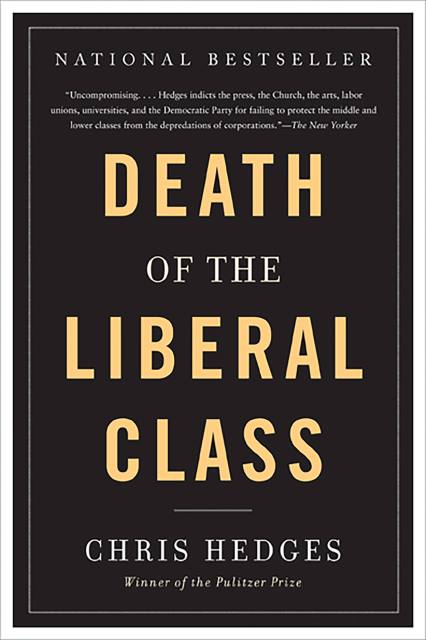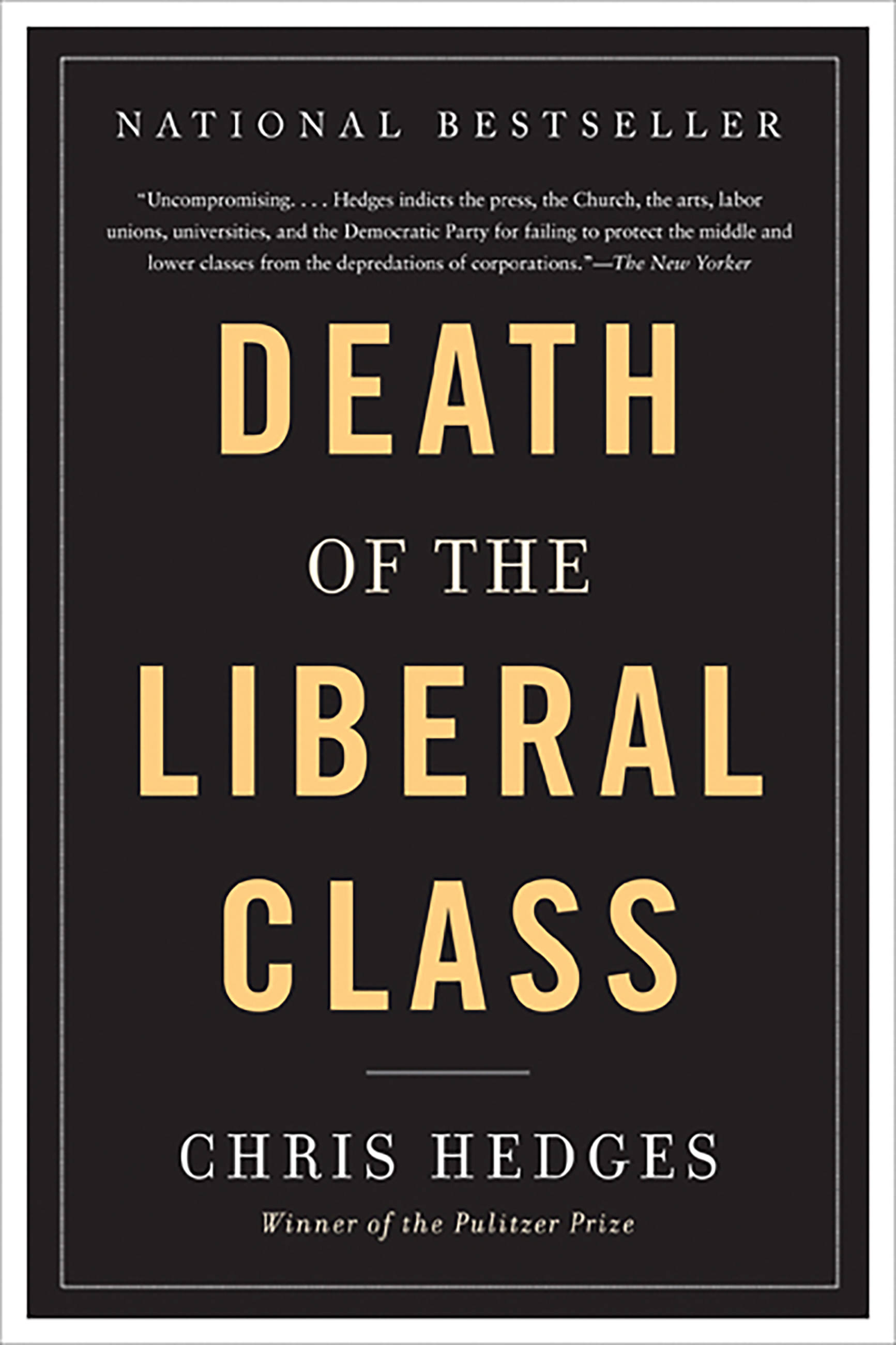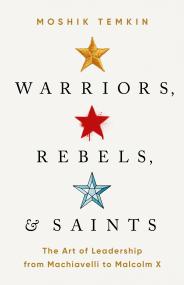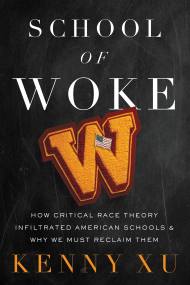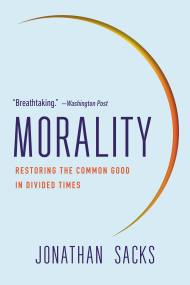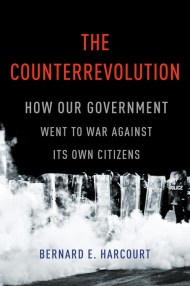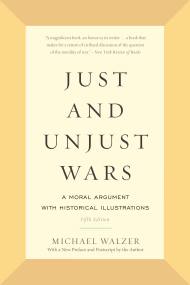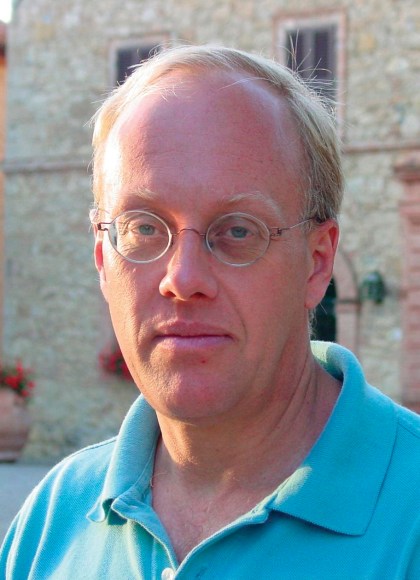Promotion
Use code MOM24 for 20% off site wide + free shipping over $45
Death of the Liberal Class
Contributors
By Chris Hedges
Formats and Prices
Price
$9.99Price
$12.99 CADFormat
Format:
- ebook $9.99 $12.99 CAD
- Trade Paperback $16.99
This item is a preorder. Your payment method will be charged immediately, and the product is expected to ship on or around October 19, 2010. This date is subject to change due to shipping delays beyond our control.
Also available from:
In this searing polemic Chris Hedges indicts liberal institutions, including his former employer, the New York Times, who have distorted their basic beliefs in order to support unfettered capitalism, the national security state, globalization, and staggering income inequalities. Hedges argues that the death of the liberal class created a profound vacuum at the heart of American political life. And now speculators, war profiteers, and demagogues — from militias to the Tea Party — are filling the void.
Genre:
- On Sale
- Oct 19, 2010
- Page Count
- 256 pages
- Publisher
- Bold Type Books
- ISBN-13
- 9781568586489
Newsletter Signup
By clicking ‘Sign Up,’ I acknowledge that I have read and agree to Hachette Book Group’s Privacy Policy and Terms of Use
